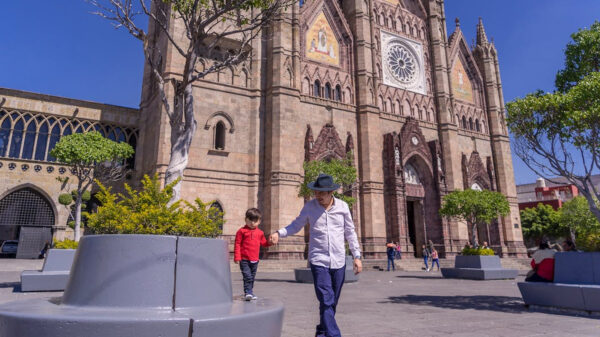
I knew, then, that any desire on my part to train the students in my youth ministry (or even my own kids) would require me to calendar such a challenge. But what should that look like if I wanted to train my young people in theology, apologetics or Christian behavior? I knew that challenges in these important areas of Christian truth would need to (1) raise the bar, (2) require my young people to make the case for truth, and (3) push them just beyond their comfort zone.
Sound intimidating? It’s not. Here is a brief list of suggestions to help you take the first step:
Surveys and Conversations (1 afternoon)
This is perhaps one of the easiest ways to “deploy” your young people, as it requires the least amount of preparation. Consider engaging people publicly about their spiritual beliefs by using a simple survey (we provide on in our new book, So the Next Generation Will Know, but you can easily create your own). Most people are open to answering brief spiritual questions, especially if you begin by saying, “We’re conducting a survey about people’s spiritual beliefs, do you have a minute to answer a few questions?” I’ve done this in a variety of settings, using the survey as a launching pad for conversations. If your students or kids are just getting started, they can use the survey to simply collect information. As they become better prepared, they can use the questions to trigger deeper conversations about the evidence for Christianity.
Evangelism (1 afternoon)
For most of us, the idea of sharing our faith publicly is scary enough to motivate us to prepare well. In fact, fear is probably the one thing that keeps people from evangelizing in the first place. What if somebody asks a question I can’t answer? We’ve used public evangelism opportunities to form the basis for several weeks of training related to theological issues (What is the nature of Christian salvation and how can we accurately offer the Gospel?), apologetics issues (How will we respond to objections about the Bible, Christianity or the existence of God?) and behavioral issues (How are we to treat people who believe different things about God? How does our status as Christians effect our public identity?).
Teaching in a Family or Class setting (1 afternoon)
One of the best ways to learn something is to teach it. As youth pastors and teachers, we’ve asked our students to teach a variety of theological or apologetics topics to their classmates or youth group and calendared the day about a month from the assignment. Without having to ask, the student-teachers began to research their topic on their own, if for no other reason than the fact that they didn’t want to look foolish in front of their peers. Ask your kids to teach during your family devotional, or work with your church’s pastoral leadership to arrange a brief teaching opportunity for your students during a Sunday School session or mid-week small group meeting. If you teach high school Bible at a Christian school, have your students teach a theological or apologetics lesson to lower classmen, junior higher students, or even elementary kids at the school.
Creating a YouTube Video or Blog Entry (1 afternoon)
Given that Gen Zers are digital natives, this kind of task may be just the kind of thing that would activate their preparation. Create a YouTube Channel or simple blog (there are a number of free blog hosting sites) and ask your student to answer a simple theological or apologetics question on video or in a written format. The public nature of this request can be a real motivation, and you can decide if it’s appropriate to allow comments on the post (or simply keep it private). Set a due date for publishing, then tell your student or child that they can distribute the post to friends or family members on social media.
Serving in a Neighborhood (1 afternoon of full day)
Service projects help students connect the dots between Christian behavior and evangelism. We’ve helped elderly people and single parents repair their homes, served disabled neighbors who needed their errands run, and cleaned up local parks and beaches. In every opportunity, our Christian character (behavior) eventually opened a door to a spiritual conversation. Why are you people so kind? What motivates you to help me even though I didn’t ask? Why are you out here on a hot day? We’ve used these scheduled events to motivate our students to behaviorally live out the truth they believe. These scheduled events give us the opportunity to ensure that our students know how to both share and defend their faith.
Visiting a Local University Campus (1 afternoon or full day)
Pick a local university and visit the campus during an academic session so students will be present in the courtyards and common spaces. You can decide whether your students should use the spiritual survey we’ve described or if they’re ready to engage in more traditional forms of evangelism. If possible, arrange a meeting with a student group (either Christian, religious or atheist) to talk about spiritual matters or simply ask what life on the campus is like, given their worldview.
Visiting a Religious Community or Facility (1 afternoon or full day)
We’ve visited mosques, Mormon wards, Universalist churches and a variety of religious groups to attend services, ask questions and engage in conversations. While these trips may seem entirely theological or apologetics in nature, they aren’t. Students who attend these opportunities are challenged to learn how to respond in love, even when someone makes a false claim about Christianity. Behavioral training prior to these trips is crucial.
Serving at a Local Mission or Ministry (1 day)
Our groups have served at local rescue missions, soup kitchens and churches (like those on Skid Row in Los Angeles). These trips allow us to explore the behavioral commands of scripture (related to the dignity of every human being, the purpose of our existence, the necessity of serving the poor and homeless), but they also require some theological and apologetics training. Our students almost always engage people with the Gospel and find themselves answering questions and objections.
I recognize that some of these suggestions may seem intimidating. Don’t panic. You can start with the easiest of these suggestions or simply create your own. The kind of challenge is nearly as important as the fact you’ve planned something to activate what you’ve been teaching your students or kids. Put something on the calendar, then begin to prepare. The preparation itself is worth the “price of admission.”

J. Warner Wallaceis a Dateline featured Cold-Case Detective, Senior Fellow at the Colson Center for Christian Worldview, Adj. Professor of Christian Apologetics at Talbot School of Theology, Biola University, author of Cold-Case Christianity, God’s Crime Scene, and Forensic Faith, and creator of the Case Makers Academyfor kids.
J. Warner Wallace is a Dateline featured cold-case homicide detective, popular national speaker and best-selling author. He continues to consult on cold-case investigations while serving as a Senior Fellow at the Colson Center for Christian Worldview. He is also an Adj. Professor of Christian Apologetics at Talbot School of Theology, Biola University, and a faculty member at Summit Ministries. He holds a BA in Design (from CSULB), an MA in Architecture (from UCLA), and an MA in Theological Studies (from Gateway Seminary).








































